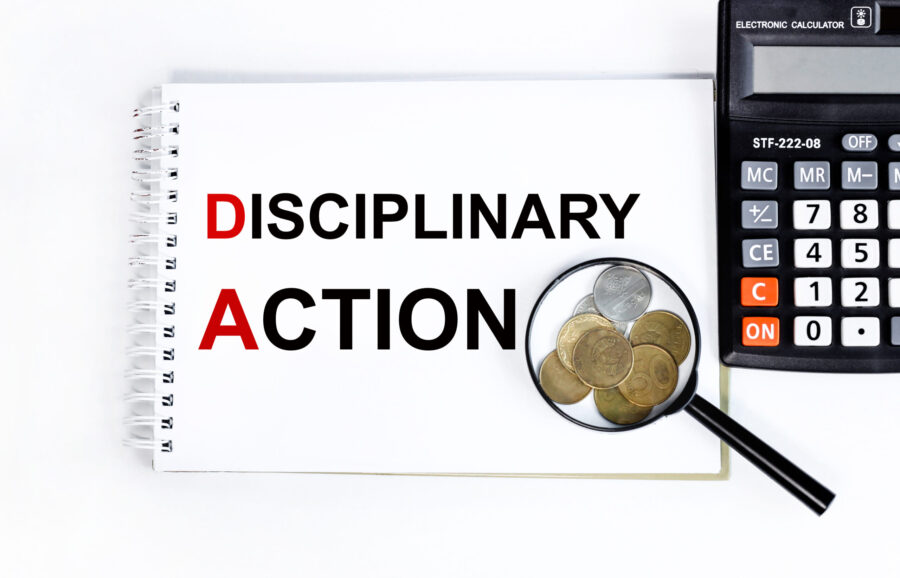The Four Types of Permissible Disciplinary Actions for Federal Employees

As a federal employee, you’ve likely spent countless hours committed to serving the public, and the prospect of facing disciplinary measures can be devastating. Navigating the labyrinth of federal employment laws can seem daunting, especially without the help of an experienced attorney. At The Vaughn Law Firm, we know that federal disciplinary actions are stressful and complicated, which is why we work so hard to protect your rights. In this blog post, we’ll explore the four permissible disciplinary actions you may face and your rights as a federal employee, empowering you to navigate these challenging situations.
Before getting too deep into this topic, it’s worth noting that the U.S. Merit Systems Protection Board (MSPB) says there are different rules for different types of disciplinary actions, and these rules can vary among agencies. Having said that, as a federal employee, the four permissible disciplinary actions a supervisor can take against you are:
Letter of Reprimand
A Letter of Reprimand is one of the least severe disciplinary actions federal supervisors can take, but it should still be taken seriously. The formal letter details an employee’s misconduct or performance issue and warns about potential consequences if the behavior continues. The aim is to prompt corrective action from the employee rather than resort to more serious disciplinary measures.
Supervisors often use this action as an initial step to address minor infractions or performance issues. It can act as a wake-up call and give the employee an opportunity to rectify their behavior or performance. The letter typically stays in the employee’s personnel file for three years but doesn’t directly affect the employee’s pay, status, or tenure.
Suspension
A suspension, a more serious disciplinary action, temporarily removes a federal employee from their role without pay. For suspensions of 14 days or less, employees are entitled to an advanced written notice, the right to respond, legal representation, and a written decision at the earliest possible date. For suspensions over 14 days, employees receive a minimum of 30 days’ advance written notice and at least seven days to respond.
Demotion
A demotion is a significant disciplinary action that involves reducing an employee’s rank, grade, or pay level within the federal system due to misconduct or performance issues. This action is typically employed when the severity of the infraction is such that less severe disciplinary actions are inadequate, but the infraction was not so severe as to warrant termination. The demotion process involves steps similar to a suspension, including providing advance written notice detailing the reasons for the action, allowing the employee a reasonable time to respond, and providing them the right to be represented by an attorney or other representative.
Removal Disciplinary Actions
Unlike private sector workers, federal employees can only be fired for cause, meaning the agency must have valid grounds for removal. The removal process can take a long time and often involves steps such as negative performance reviews, performance improvement plans, and the ability to appeal a removal through the MSPB.
The removal process is sometimes faster for misconduct-related cases, but the employee still retains the right to appeal or file a grievance. Notably, the same federal discrimination laws that apply in the private sector apply to employees at government agencies, so termination decisions should never be based on race, color, religion, sex, national origin, age, or disability.
Call a Skilled Federal Employee Disciplinary Actions Attorney Today
Facing disciplinary action as a federal employee can be stressful. However, it’s essential to remember that you are not alone, and professional legal support can guide you through this challenging time.
An experienced attorney well-versed in federal employment law can help you through the complex legal landscape, defend your rights, and advocate for your interests. If you’re a federal employee facing disciplinary action, call The Vaughn Law Firm today at (877) 615-9495 for a consultation, or you can complete our online contact form.




